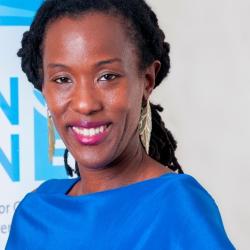Building forward through innovative financing for gender equality in the Caribbean
The growing need for gender-responsive financing.
A growing need for gender-responsive financing
As Caribbean small island developing states (SIDS) aim to achieve the sustainable development goals (SDGs) by 2030, both governments and private sector agencies need to navigate, sustainable development through gender-responsive innovative financing and digital finance transformation. Innovative financing draws on non-traditional mechanisms and partners to raise funds to support sustainable development.
Moving forward towards post-pandemic growth while acknowledging the reality of many Caribbean SIDS still being in the rehabilitation and reconstruction phases due to natural hazard impacts within the past ten years is essential. Livelihoods and incomes of small-scale business owners, in particular women must be prioritised on our Agendas.
Implementing a three-pronged approach
Gender-responsive innovative financing in the Caribbean should take a three-pronged approach that focuses on greater access, greater effectiveness, and greater efficiency to advance projects integrating digital transformation for this targeted area of gender and climate financing.
The linkages between humanitarian response, resilient disaster recovery and the ongoing impact of COVID-19 further highlights the need for a more reliable and sustainable sources of financing. Public-private partnerships, gender bonds, blended finance, climate finance, novel product licensing, insurance and other disaster risk finance instruments, debt swaps and nature-based solutions, should be integrated into tourism, agriculture, care, culture and creative sector policies, to name a few.
Addressing the barriers
The Gender Inequality of Climate Change and Disaster Risk Studies completed for nine Caribbean countries under the EnGenDER Project revealed that there is a low uptake of insurance instruments by small farmers for example. Many of these small farmers happen to be women. The development of financial instruments, that are accessible to those most left behind will be catalytic in empowering business resilience and recovery for women engaged in micro-small and medium enterprises should they be impacted by a natural hazard event.
Increasing opportunities for access to quality innovative financial instruments to strengthen disaster resilience, gender equality, and structural transformation in the Caribbean requires an understanding of socio-cultural realities, and supporting enhanced capacity through targeted skills training to support increased competitiveness among micro and small entrepreneurs. Gender equality, climate resilience and innovative financing are not siloed issues, they are deeply interconnected and interrelated. UN Women Multi-Country Office in the Caribbean looks forward to collaborating closely with partners across UN sister agencies, development partners, governments and CSOs to strike the balance in order to build back equal from COVID-19.
About the author:
Tonni Brodber is the Representative of the UN Women Multi-Country Office in the Caribbean. Prior to her appointment in August 2020, Ms. Brodber served as Deputy Representative from 2015 -2020 with the MCO Caribbean. Before this Ms. Brodber was the Team Leader for the Advancing Gender Justice in the Pacific programme with the UN Women Fiji Multi-Country Office.
Ms. Brodber served as the Gender Specialist for the United Nations Development Programme in South Africa, as well as briefly with the UN Women South Africa Multi-Country Office and established what is now the UN Women Country Office in Haiti.
